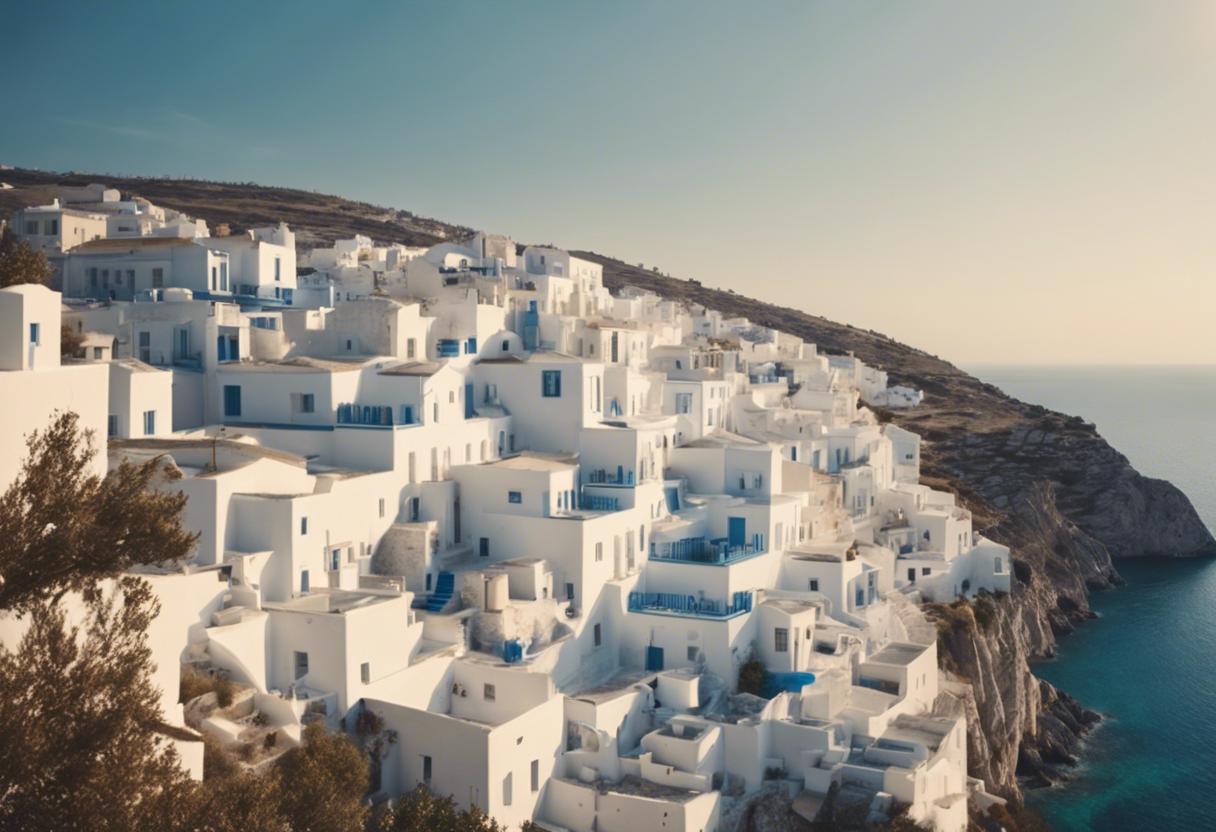Andrea Camilleri, a noted pessimist of Italian affairs, in 2007 penned Italy as an uncertain republic, birthed from errors. Similarly, it could be expressed that Greece, established as a republic in 1974 post the dissolution of the monarchy, is also rather unstable. From a monetary, societal, and even geographical standpoint, Greece shows signs of vulnerability. And the errors? The biggest blunder in its contemporary history was surmising that its destiny was anchored in Western ideals, neglecting its intrinsic Eastern flamboyance.
This view was echoed in the assertion made by its prime minister Konstantinos Karamanlis in the 1980s that Greece was a part of the western world, demonstrating the ardent belief that modernisation (synonymous here with Westernisation) was the sole viable path for the nation.
However, Greece resonates more with its Balkan neighbours than the conventional European ethos. By virtue of its historical, geographical, and cultural splendour, Greece genuinely stands apart. Such uniqueness is what the West has striven to mould.
Since gaining independence, an extremely traditional society has ensued, significantly marginalising leftist ideology. It has also spawned an educational framework that promotes more memorisation than analytical reasoning, putting a damper on free-thinking and innovation. Parents who desire comprehensive growth for their children are often compelled to enrol them in an after-school ‘frontisterio’ or ‘crammer’ for a more liberal education.
The absence of global perspectives in higher education is evident. In my capacity as a guest instructor at Ionian University, I was taken aback to discover a glaring dearth of global content. Music postgraduates lacked exposure to Sibelius, while language students showed a total unfamiliarity with literary stalwarts like Kafka or Yeats.
Should creative younger individuals face discouragement when they aim to deviate from conventional thinking, the most fitting choice would be to leave the constricting environment of Greece. The country is grappling with a massive brain drain, a growing economic disparity, and widespread practices of fraudulence and dishonesty, akin to the situation depicted by Camilleri concerning Italians.
In Yannis Palaiologos’ 2014 publication, “The 13th Labour of Hercules,” he referred to clientelism as an erosive social acid tearing apart Greek society, leading to the nation being controlled by well-connected underachievers. This perspective is currently backed up by Athens University’s law professor, Aristides Hatzis, who identifies the power structures within the Greek state as inherently causing the decay of legal principles, which results in malfunctioning institutions and eventually, an unhealthy civil society.
Moreover, the stability of the Greek economy is questionable, as it heavily relies on income from tourism which comprises more than a fifth of its GDP, while the extremely wealthy avoid paying significant amounts of tax. Furthermore, the borders of Greece continuously remain open for discussion. Historical warfare led to key regions such as the nation’s second-largest city, Thessaloniki, Crete – the prime minister’s homeland, and the Dodecanesian Islands becoming part of Greece in 1913 and 1947 respectively.
Greece and Turkey’s elongated disputes over rightful marine territory and the ownership of several Aegean Islands have threatened to cause open conflict numerous times. Presently, the Greek borders (and by extension, those of the EU) provoke concern in terms of refugees from Turkey due to their permeable nature.
Further exacerbating Greece’s issues is a diplomatic disagreement about the name of the erstwhile province of Yugoslavia, Macedonia. This reflects a split in Greek national sentiments because the newly formed state shares its border with a Greek province carrying the same name. Clearly, this is reminiscent of the infamous Ulster scenario.
The history of the Balkans is laden with border instability, diverse cultures and scattered identities, and unstable boundaries are not uncommon in countries such as Albania, Bulgaria and Turkey. And in each situation, Greece is constantly at odds with these locations.
In an interaction I had, an undiplomatic query of ‘Why do you hate my country?’ was thrown at me by a Greek emissary in Dublin.
Even though Greece has its share of incongruity and irregularities, it’s still an incredibly charming country. I’m referring here not to its environmental allure – consistently being threatened by rapacious, and often unlawful construction – but to the charm of its citizens who continue to live in spite of rampant bureaucracy, favouritism, and cronyism.
The same Greek envoy wondered why I would disparage the country where I reside when he assumed I was just a sporadic visitor who composed these reflections from the comfort of a Dublin suburb. Nothing could be further from the truth.
Most of my village mates are naturally clever, contentious, diligent, and truthful. Our village was nearly destroyed by a forest fire last year – the closest it has ever come to such destruction. The villagers’ reaction to this grave risk exemplified a unique aspect of the Greek nationality: toughness and ability to bounce back. This response wasn’t just from professional fire brigades, but also young volunteers who embodied this proactive attitude towards danger. It’s regrettable that such vigour isn’t seen in their daily life.

